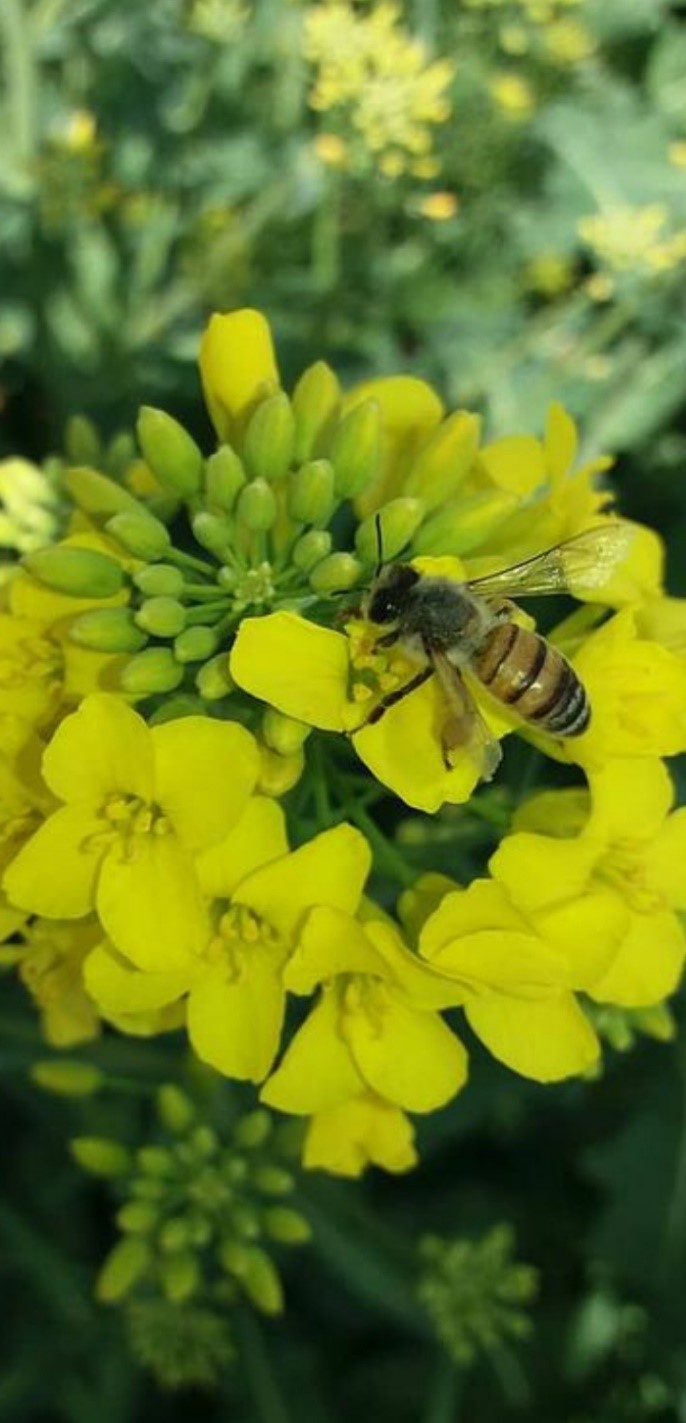
Overview
The science of crop production forms the foundation of all agricultural activities. The Department of Plant Production and Genetics was established with the primary objective of educating specialists in the diverse fields of plant production, breeding, and biotechnology. We offer a comprehensive range of programs, including a Bachelor's degree (B.Sc. in Plant Production and Genetics Engineering), six distinct Master's (M.Sc.) specializations, and three Doctor of Philosophy (Ph.D.) specializations.
Our mission is to educate experts who possess the capabilities to advance agricultural development in both the Governmental and private sectors, addressing provincial, regional, and national needs. By training these dedicated specialists, we aim to optimize the use of our nation's land resources to increase crop yields under both irrigated and dry land conditions and to enhance the quality of agricultural products.
The Department of Plant Production and Genetics was founded in 1996 to train experts capable of working in various regions in the field of crop production. The department initially launched an Associate's degree program in Plant Production Technology. In 2004, it began offering a non-continuous Bachelor's program in Agronomy. By 2007, the department successfully established a Master of Science (M.Sc.) program in Agronomy.
In 2008, the Department of Plant Production and Genetics further expanded its postgraduate offerings by introducing a Master's program in Agricultural Biotechnology. In 2009, the admission for Associate's and non-continuous Bachelor's degrees was discontinued. These were replaced by a continuous Bachelor of Science (B.Sc.) in Plant Production and Genetics Engineering, along with Master's programs in Genetics and Plant Breeding. In 2012, the department also added a Master of Science (M.Sc.) in Agroecology.
Following the expansion of its Master's programs, the Department of Plant Production and Genetics began admitting students to its Ph.D. programs in Crop Physiology and Crop Ecology in 2012. Moreover, after enrolling Bachelor students in Biotechnology in 2015, the department launched a Ph.D. program in Agricultural Biotechnology in 2016.
Currently, the department educates students across ten different degree programs and specializations, as detailed in the table below.
The science of crop production forms the foundation of all agricultural activities. The Department of Plant Production and Genetics was established with the primary objective of educating specialists in the diverse fields of plant production, breeding, and biotechnology. We offer a comprehensive range of programs, including a Bachelor's degree (B.Sc. in Plant Production and Genetics Engineering), six distinct Master's (M.Sc.) specializations, and three Doctor of Philosophy (Ph.D.) specializations.
Our mission is to educate experts who possess the capabilities to advance agricultural development in both the Governmental and private sectors, addressing provincial, regional, and national needs. By training these dedicated specialists, we aim to optimize the use of our nation's land resources to increase crop yields under both irrigated and dry land conditions and to enhance the quality of agricultural products.
The Department of Plant Production and Genetics was founded in 1996 to train experts capable of working in various regions in the field of crop production. The department initially launched an Associate's degree program in Plant Production Technology. In 2004, it began offering a non-continuous Bachelor's program in Agronomy. By 2007, the department successfully established a Master of Science (M.Sc.) program in Agronomy.
In 2008, the Department of Plant Production and Genetics further expanded its postgraduate offerings by introducing a Master's program in Agricultural Biotechnology. In 2009, the admission for Associate's and non-continuous Bachelor's degrees was discontinued. These were replaced by a continuous Bachelor of Science (B.Sc.) in Plant Production and Genetics Engineering, along with Master's programs in Genetics and Plant Breeding. In 2012, the department also added a Master of Science (M.Sc.) in Agroecology.
Following the expansion of its Master's programs, the Department of Plant Production and Genetics began admitting students to its Ph.D. programs in Crop Physiology and Crop Ecology in 2012. Moreover, after enrolling Bachelor students in Biotechnology in 2015, the department launched a Ph.D. program in Agricultural Biotechnology in 2016.
Currently, the department educates students across ten different degree programs and specializations, as detailed in the table below.
Degree Level
|
Program Title |
|---|---|
B.Sc.
|
Plant Production and Plant Genetics Engineering |
M.Sc.
|
Plant Genetics and Breeding |
| M.Sc. | Crop physiology |
| M.Sc. | Agroecology |
| M.Sc. | Agrotechnology – Seed Science and Technology |
| M.Sc. | Agrotechnology – Weed Science |
| M.Sc. | Agricultural Biotechnology |
Ph.D.
|
Agricultural Biotechnology |
| Ph.D. | Agrotechnology – Ecology of Field Crops |
| Ph.D. | Agrotechnology – Crop physiology |
Dear Students,
As the Head of the Department of Crop Production and Plant Genetics, I am honored to invite all undergraduate, master’s, doctoral, and international students in our department to actively participate in educational, research, and innovative activities.
Our mission is to train creative and capable specialists in cutting-edge areas of plant sciences, particularly in plant breeding, crop management, biotechnology, and molecular genetics.
In our department, we strive—through the expertise of highly qualified faculty members, access to advanced laboratory facilities, and strong international scientific collaborations—to provide an environment that fosters academic growth and the development of talents. We expect our students to pursue their learning and research with motivation, perseverance, and curiosity, and to enhance the country’s scientific standing by disseminating their research achievements.
The Department of Crop Production and Plant Genetics is your academic home; together, let us make it a dynamic, creative, and influential center for addressing scientific and practical challenges in agriculture.
Wishing you continued success,
Dr. Asad Maroufi
Head of the Department of Crop Production and Plant Genetics
As the Head of the Department of Crop Production and Plant Genetics, I am honored to invite all undergraduate, master’s, doctoral, and international students in our department to actively participate in educational, research, and innovative activities.
Our mission is to train creative and capable specialists in cutting-edge areas of plant sciences, particularly in plant breeding, crop management, biotechnology, and molecular genetics.
In our department, we strive—through the expertise of highly qualified faculty members, access to advanced laboratory facilities, and strong international scientific collaborations—to provide an environment that fosters academic growth and the development of talents. We expect our students to pursue their learning and research with motivation, perseverance, and curiosity, and to enhance the country’s scientific standing by disseminating their research achievements.
The Department of Crop Production and Plant Genetics is your academic home; together, let us make it a dynamic, creative, and influential center for addressing scientific and practical challenges in agriculture.
Wishing you continued success,
Dr. Asad Maroufi
Head of the Department of Crop Production and Plant Genetics
Agroecology is a vital branch of modern agriculture and is regarded as one of its top priorities. It is an interdisciplinary field combining agricultural and ecological sciences, focusing on the study, design, management, and evaluation of farming systems inspired by ecological principles and processes. Its goal is to develop food production systems that are sustainable, efficient, resilient to stresses, and environmentally compatible.
Agroecology is recognized as:
Agroecology is recognized as:
- A scientific discipline:
- Examines interactions among plants, animals, microorganisms, soil, water, and climate within a farm or agricultural ecosystem.
- Applies ecological principles such as biodiversity, nutrient cycling, biological pest control, and resource-use efficiency.
- A practical and managerial approach:
- Designs polyculture systems and crop rotations.
- Reduces dependence on chemical inputs through green manures, compost, and organic soil management.
- Integrates pest and disease management using natural methods.
- Optimizes water and energy use.
- A social and economic movement:
- Supports small-scale and traditional farming.
- Improves food security and community nutrition.
- Promotes production methods beneficial to both farmers and the environment.
In simple terms, agroecology applies ecological science to agriculture in order to achieve sustainable, nature-friendly production while meeting the economic and social needs of farming communities.
Agrophysiology is a branch of plant sciences that studies the physiological processes of field crops and their interactions with environmental and management factors, aiming to improve productivity and sustainability. It bridges plant physiology and agronomy, playing a key role in breeding, crop management, and production optimization.
Key Areas of Study:
- Core physiological processes: photosynthesis, respiration, transpiration, transport and allocation of photoassimilates, water relations, and water-use efficiency.
- Growth and development: germination, seedling establishment, vegetative growth, reproductive development, leaf area index dynamics, and yield formation.
- Stress physiology: plant responses to drought, salinity, extreme temperatures, and nutrient imbalances; mechanisms of resistance and tolerance.
- Management interactions: effects of planting density, sowing date, irrigation, fertilization, and weed control on physiological processes; optimizing inputs for efficiency and environmental safety.
- Modeling and yield prediction: using crop growth models to simulate and forecast performance under various climatic and management conditions.
Today, agroecology has a special place in science and is one of the priorities of agriculture. The revelation of the negative consequences of conventional systems such as climate change, environmental pollution, increasing pest resistance, and declining product quality, shows the need to establish this field. The purpose of training master’s degree students in agroecology is to acquire the necessary skills to analyze agricultural ecosystems and apply compatible ecosystem technologies on a regional and national scale. Specialists in this field by learning specialized solutions and attention to ecological agricultural systems and low-consumption systems with high yields and compatible with nature in the field of maintaining sustainable crop production, community health, organic farming, production of standard products and production of medicinal plants can be efficient and responsive to the urgent needs of society in macro and long-term policies.
This field focuses on understanding heredity, genetic variation, and the application of genetic principles to improve crops. It includes:
- Plant Genetics: classical genetics, molecular genetics, population genetics, genomics, and bioinformatics.
- Plant Breeding: selection, hybridization, marker-assisted selection, genomic selection, genetic engineering, and genome editing (e.g., CRISPR/Cas), aiming to enhance yield, quality, stress resistance, and adaptability.
Agricultural Biotechnology is an interdisciplinary branch of life sciences and agriculture that applies biological and molecular technologies to improve, protect, and sustainably utilize plant resources, thereby enhancing agricultural productivity. This field integrates knowledge of genetics, molecular biology, tissue culture, and genetic engineering to achieve both scientific and practical objectives.
In the domain of crop plants and medicinal plants, Agricultural Biotechnology is particularly focused on developing traits that improve yield, quality, medicinal value, and plant resistance.
1 – Key Areas in Agricultural Biotechnology
(With emphasis on crop and medicinal plants)
a) Plant Tissue Culture & Micropropagation
In the domain of crop plants and medicinal plants, Agricultural Biotechnology is particularly focused on developing traits that improve yield, quality, medicinal value, and plant resistance.
1 – Key Areas in Agricultural Biotechnology
(With emphasis on crop and medicinal plants)
a) Plant Tissue Culture & Micropropagation
- Rapid and large-scale propagation of superior and pure cultivars
- Production of virus-free plants
- Germplasm conservation and preservation of genetic resources
- Introduction of desirable genes (e.g., genes for pest, disease, or environmental stress resistance)
- Application of CRISPR/Cas technology for precise trait improvement
- Development of high-performance transgenic plants
- Identification and tracking of genes associated with valuable traits
- Marker-assisted selection (MAS) in breeding programs
- Optimization of active pharmaceutical compound production under controlled conditions
- Use of cell culture and hairy root culture systems for the production of high-value bioactive compounds
- Genomic data analysis for the identification of key genes
- Prediction of important metabolic pathways in medicinal plants
- Enhancing yield and quality of agricultural crops
- Improving plant resistance to biotic stresses (pests and diseases) and abiotic stresses (drought, salinity, cold)
- Sustainable production of medicinal and high-value compounds from plant sources
- Conservation of genetic diversity in native and medicinal plants
| No. | Farm Nmae | Area | Location | |
|---|---|---|---|---|
| 1 | Dushan | 12 Hectares | Dushan Town, 2 km from Sanandaj | |
| 2 | Sarab Dehgolan | 55 Hectares |
|



















